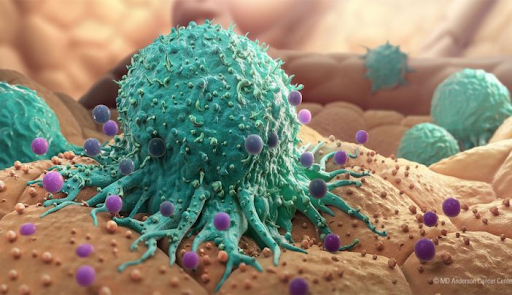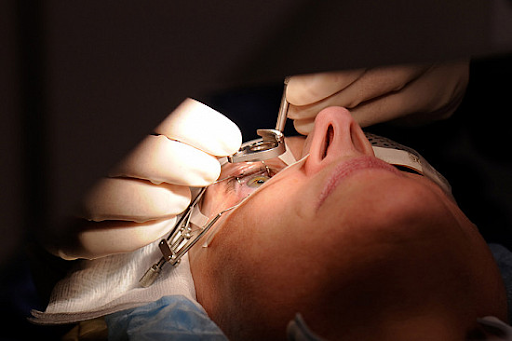
Introduction:
Cancer is a complex and heterogeneous disease that affects millions of people worldwide it is caused by the uncontrolled growth and spread of abnormal cells in the body there are many types of cancer each with different causes symptoms and treatments some cancers can be cured meaning the cancer cells are eliminated from the body and do not return other cancers can be treated meaning the cancer cells are reduced or controlled but may remain in the body or recur later cancer care aims to provide the best possible outcome for each patient depending on their type and stage of cancer their overall health and their personal preferences
Understanding Cancer:
Cancer is a complex and devastating disease that affects millions of people worldwide it is characterized by the uncontrolled growth and spread of abnormal cells in the body these abnormal cells known as cancer cells can invade nearby tissues and organs disrupting their normal functions cancer development involves a series of genetic mutations that alter the normal regulation of cell growth and division these mutations can be caused by various factors including genetic predisposition exposure to carcinogens such as tobacco smoke or ultraviolet radiation certain infections hormonal imbalances and lifestyle choices cancer can manifest in different forms and affect virtually any body part common types of cancer include breast lung prostate collector and skin cancer among others each type of cancer has unique characteristics prognosis and treatment options early detection and timely intervention play a crucial role in improving cancer outcomes screening tests such as mammograms pap smears colonoscopies and certain blood tests can help detect cancer early when treatment is most effective advancements in cancer research have led to significant improvements in treatment options including surgery radiation therapy chemotherapy targeted therapy and immunotherapy treatment plans are tailored to each individual s specific cancer type stage and overall health while progress has been made in cancer treatment the quest for a definitive cure continues ongoing research aims to unravel the complexities of cancer biology develop more effective therapies and ultimately find a way to prevent and eradicate this devastating disease in the meantime raising awareness promoting healthy lifestyles and supporting individuals affected by cancer are crucial steps in the fight against this formidable foe
Treatment Approaches:
- Surgery
surgery is a common treatment modality for cancer it involves the removal of cancerous cells or tumors from the body surgery can be curative in cases where the tumor is localized and completely excised however in instances where cancer has spread surgery may be used as part of a comprehensive treatment plan
- Radiation Therapy
radiation therapy utilizes high energy radiation to target and destroy cancer cells it can be administered externally or internally depending on the type and location of the cancer radiation therapy aims to shrink tumors alleviate symptoms and cure localized cancers
- Chemotherapy
chemotherapy refers to using drugs to kill or inhibit the growth of cancer cells it can be administered orally intravenously or topically chemotherapy is often used in systemic treatment approaches targeting cancer cells throughout the body while it can sometimes achieve remission and cure it is not always effective against certain aggressive cancers
- Targeted Therapy
targeted therapy involves using drugs or other substances to target cancer cells sparing healthy cells specifically this approach focuses on the unique molecular characteristics of cancer cells targeted therapies have shown promising results in certain cancers but are not universally effective
- Immunotherapy
immunotherapy stimulates the body s immune system to recognize and destroy cancer cells it can enhance the immune response or introduce artificial immune system components immunotherapy has revolutionized cancer treatment and resulted in remarkable responses in certain patients however its efficacy varies depending on the cancer type and individual patient factors
Treatment Outcomes:
While medical advancements have greatly improved cancer treatment outcomes, it is essential to distinguish between treatment and cure. Treatment refers to managing cancer to control its growth, alleviate symptoms, and prolong life. It involves various therapeutic interventions tailored to each patient’s unique circumstances.
On the other hand, a cure implies completely eradicating cancer from the body, resulting in long-term remission or the absence of disease. Achieving a cure for cancer remains a complex challenge due to several factors, including the heterogeneity of cancer cells, the potential for recurrence, and late-stage diagnoses.
Survivorship and Remission:
Survivorship encompasses the period after cancer treatment when a person lives with or beyond cancer. Many individuals have completed cancer treatment and live fulfilling lives in remission. Remission indicates the absence of detectable cancer cells, either temporary or long-term. However, it is important to note that remission does not guarantee a cure, as cancer can recur even after years of being in remission.
Moving Toward a Cure:
The quest for a definitive cure for cancer is ongoing. Researchers are tirelessly exploring innovative treatment approaches, such as precision medicine, immunotherapies, and gene therapies. These breakthroughs hold the potential to transform cancer care and move us closer to finding a cure.
Conclusion:
In conclusion cancer is a complex disease that requires individualized treatment while no cure for cancer exists effective treatments are available including surgery radiation and chemotherapy the majority of patients who are diagnosed with cancer in the united states are cured of their cancer however cancer is incredibly difficult to treat because it is more complicated than ever imagined every patient is different and so is their cancer even the cells within an individual tumor can vary enormously from one another and cancer does not stand still but changes over time this makes it difficult to predict how cancer will respond to treatment researchers are working to unravel the complexity of cancer and develop new treatments that will open up cancer to new lines of attack we now understand how cancers change and evolve adapting to the environment within our bodies and sidestepping the drugs designed to halt their progress our research will untangle cancer s complexity and reveal the fundamental processes that drive its development growth and spread while there are still many challenges in treating cancer we are progressing in understanding this complex disease and developing new treatments to improve patient outcomes.








